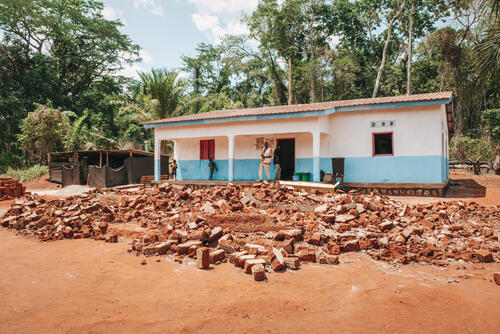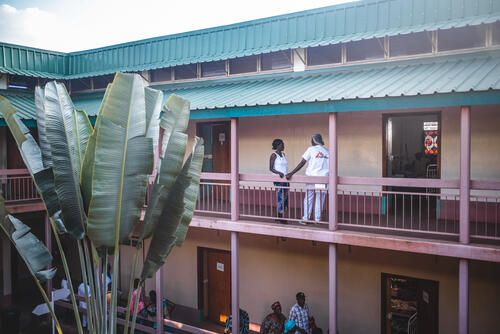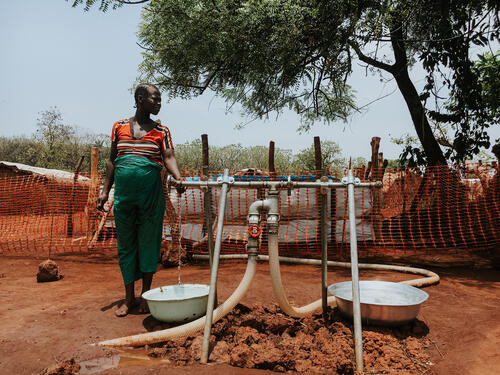In the shadow of conflict, the Central African Republic (CAR) is grappling with a decades-long health crisis. Here, in a country of 5.5 million people, access to healthcare is all but impossible and life expectancy is little more than 54 years.
For years, Médecins Sans Frontières (MSF) has repeated calls for more action from governments and humanitarian actors. Yet, the situation worsens, and our teams and the communities we serve are left wondering: where is everyone?
At the beginning of 2023, Dr Sabio, a former MSF doctor in the city of Bangassou, took over the management of Bakouma hospital. It is meant to handle surgical complications in a volatile area near Nzacko, in the northwestern part of the Mbomou prefecture.
“For 12 years, not a single doctor was present here,” he says. “The hospital was run by a health assistant. Well, when I say ‘hospital’, that’s a big word. There is no electricity, no ambulance, and beds without mattresses.
“When I arrived, there wasn’t even a thermometer, blood pressure monitor, pulse oximeter, or glucometer. The pharmacy was empty, too,” says Dr Sabio.
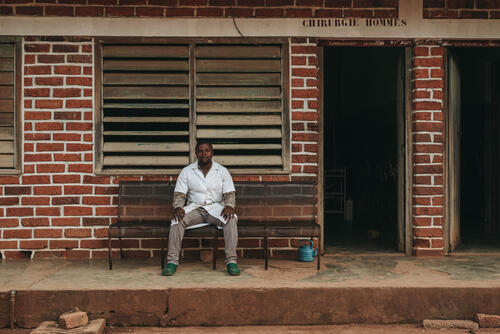
Although specialised hospitals like Bakouma hospital are supposed to provide more advanced care than health posts, health centres and district hospitals, Dr Louis-Marie Sabio struggles to provide even basic care.
The hospital is empty and eerily silent. Despite its size, there are fewer than 10 patients. Chickens roam the corridors and wards, weaving between broken scales and rusty tables. Except for the vaccinations and referrals provided by MSF, the facility receives no other support.
Patients know that despite Dr Sabio’s goodwill, the lack of human and material resources mean that they are unlikely to find the medical help they need.
“There are 18 of us running the hospital, but I’m the only one with medical training,” says Dr Sabio. “Due to our limited technical resources, we can't meet the basic requirements of a hospital.
We have no electricity, preventing us from performing ultrasounds or X-rays. The operating theatre is virtually bare, equipped only with a small solar panel to power two light bulbs. When patients need medicines, we have to send them to the local market and hope they find something.”
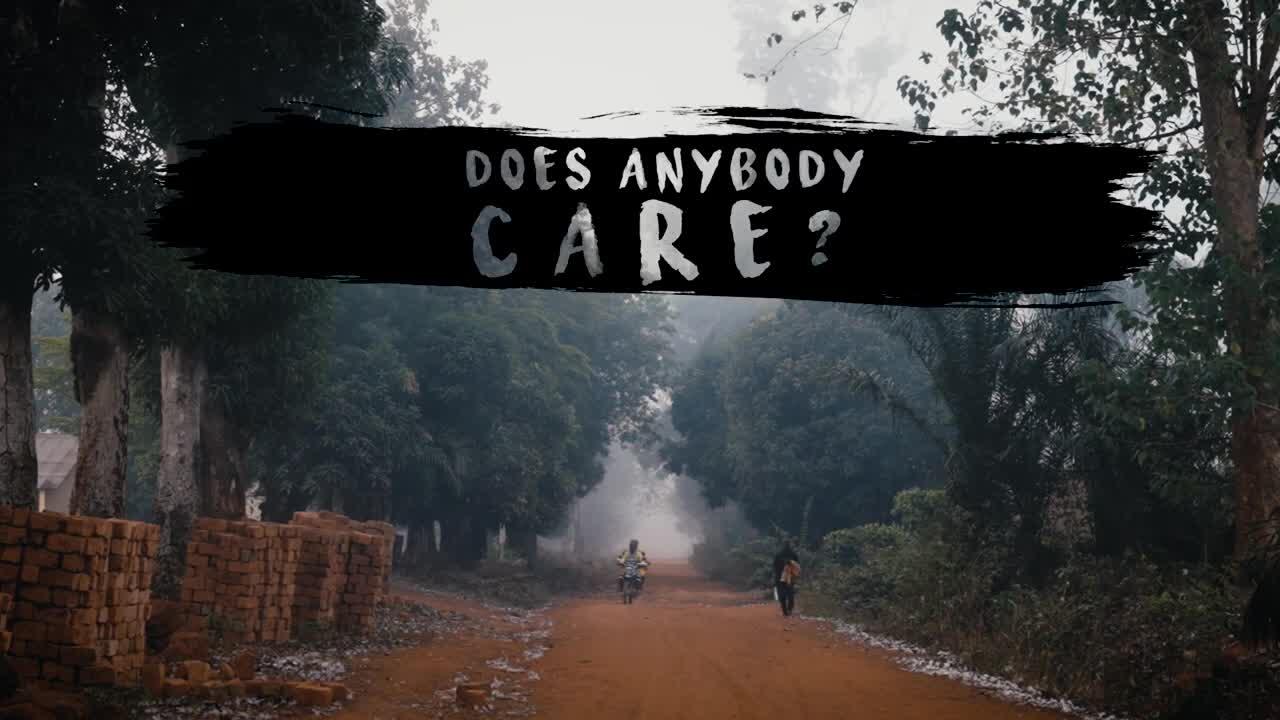
A forgotten health crisis
A critical health situation
The lack of supplies, staff, and support is replicated in health facilities across the Central African Republic. According to a recent report from the World Health Organization (WHO) and the Ministry of Health, less than half of the country's healthcare facilities are fully operational, and the ratio of doctors to people is alarmingly low, with only 0.6 doctors for every 10,000 people – one of the lowest in the world.
Decades of political unrest and violence among armed groups fuelled a massive crisis, leaving more than half of the country’s six million citizens in need of humanitarian aid. Pregnant women face a substantial risk of death or severe illness due to the scarcity of gynecologists. And child mortality rates rank among the highest globally.
“We often feel alone”
We have nearly 2,800 staff members in the country – it’s one of our largest programmes across the 75-plus countries we work in. Most hired locally, they work tirelessly to support health authorities and communities to improve access to healthcare in some of the most neglected areas.
In the Mbomou prefecture, we support 15 health facilities, from small remote health posts to the Bangassou regional university hospital – the only specialised reference facility serving a region the size of Greece.
We send mobile teams to local health facilities to provide essential equipment, vaccines, and vital medicines that can help treat common childhood diseases in the region, such as malaria, diarrhoea, and respiratory infections. MSF also provides training to health workers. Our teams also arrange referrals for patients in critical condition to Bangassou's hospital, where we support most lifesaving services.
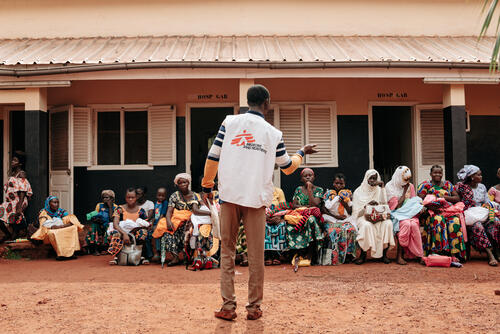
“[Our] objective is to bolster healthcare provision at all levels to reduce mortality in the area,” says Pelé Kotho-Gawe, MSF nurse supervisor for mobile activities in Bangassou.
However, the needs remain grossly neglected, as MSF is not – and cannot be – everywhere. Humanitarian organisations are scarce in this region, even though violence has calmed somewhat in recent years. The lack of access to water and electricity in health facilities, on top of economic difficulties, exacerbates the massive health crisis, which MSF cannot address alone.
“We are confronted with realities that make this work seem endless,” says Kotho-Gawe. “We can treat children suffering from diarrhoea, but without anyone drilling boreholes, the problem persists as [people] continue to drink untreated water.
“Sometimes other organisations come through, but they are not frequently seen, and we often feel alone in tackling these challenges. We clearly cannot handle everything on our own.”
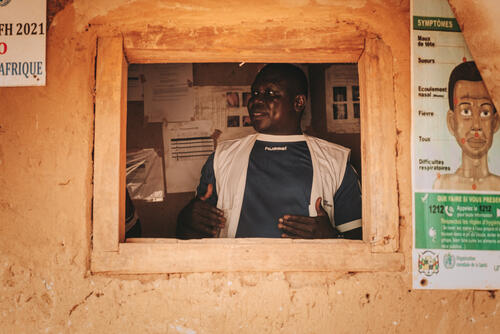
Bangassou hospital - a mirror of the crisis
Without MSF’s assistance, pharmacy stocks would be depleted, parents would struggle to afford treatment for their children, and women would give birth without the supervision of trained professionals.
However, this support is not enough, and Bangassou hospital is a stark reminder of this fact. The hospital is the last hope for all complications that cannot be treated elsewhere. As a result, patients flock to this facility day and night, sometimes travelling hundreds of kilometres by motorbike over rough terrain.
The health situation in the CAR is shocking, but I'm almost as shocked by the lack of international attention paid to it.René Colgo, MSF head of mission in Central African Republic.
Where is everyone?
“Despite the scale of the crisis and the staggering statistics, the plight of [people] remains largely unknown to the outside world, and humanitarian funding for the country falls far short of the scale of the needs,” says René Colgo, MSF head of mission in Central African Republic.
“For reasons linked to insecurity or logistical constraints, NGOs are not always present in the areas where the needs are greatest. Much more must be done to support people. Where is everyone? We cannot and must not get used to seeing CAR at the top of the worst humanitarian league tables.”
To bring about change, it’s high time to see the situation in the CAR for what it really is: a severe and lasting humanitarian crisis that requires the mobilisation of everyone.



